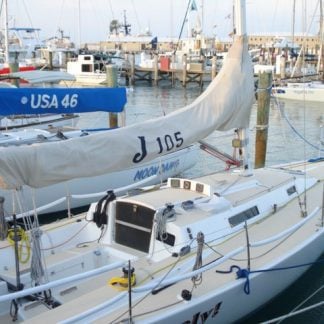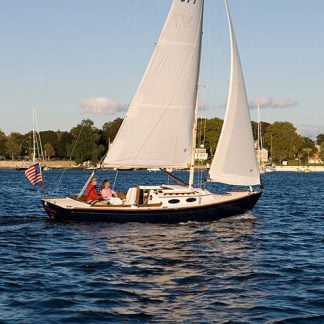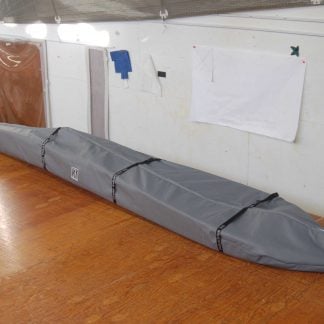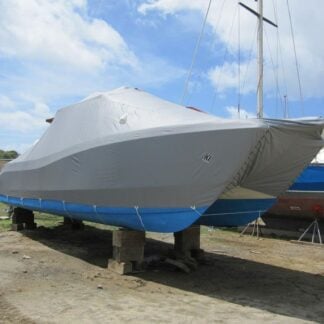MAR 31, 2025
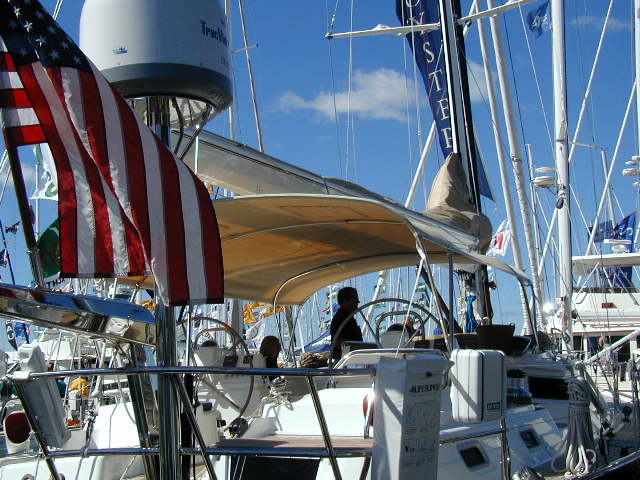
As energy efficiency becomes a top priority in many industries, the marine sector is no exception. Boat owners are constantly looking for ways to reduce energy consumption and lower their environmental footprint. While much attention is given to engine technology, fuel consumption, and solar power, one often overlooked yet impactful solution is the use of marine canvas. In this post, we’ll explore how marine canvas can contribute to enhancing energy efficiency on boats, both directly and indirectly.
How Marine Canvas Impacts Energy Efficiency
At first glance, marine canvas may seem unrelated to energy consumption, but its role in energy efficiency is more significant than one might think. The fabric used for boat covers, sails, and other canvas structures can affect the boat’s energy consumption in several ways:
- Reducing Air Conditioning and Heating Costs
One of the primary ways marine canvas enhances energy efficiency is by helping to regulate the temperature inside the boat. Properly installed canvas covers, bimini tops, and cockpit enclosures can provide shade, blocking out the sun’s heat during hot summer months. By keeping the interior cooler, these coverings reduce the need for air conditioning or fans, ultimately lowering energy usage.
In colder climates or during the winter months, marine canvas can also help retain heat inside the boat. Enclosures around the cabin or cockpit can serve as an insulating barrier, keeping the interior warmer and reducing the need for heating.
- Minimizing Solar Heat Gain
Boats that spend a lot of time exposed to the sun can experience significant solar heat gain, which can increase the load on air conditioning systems. Marine canvas that is designed with UV-reflective or UV-blocking properties can reduce solar radiation entering the boat. This feature is especially useful for boats with large glass windows or open-air cockpits.
The use of high-performance fabrics, like Sunbrella or other UV-resistant materials, can limit the amount of heat that penetrates the boat, keeping the interior cooler and more comfortable. This not only reduces the reliance on air conditioning but also helps maintain a stable and energy-efficient temperature inside.
- Enhancing Solar Panel Efficiency
Many modern boats are equipped with solar panels to generate renewable energy on board. Marine canvas can indirectly contribute to the efficiency of solar panels by providing shade or protection for the panels when not in use. For example, canvas covers designed to shield solar panels from the elements can extend the life of the panels and improve their performance.
Additionally, some canvas designs integrate solar cells directly into the fabric, providing energy-generating surfaces that contribute to powering the boat’s systems. This type of solar-powered marine canvas is still a relatively new technology but holds great potential for increasing energy independence on boats.
- Wind Protection for Sails
Another way that marine canvas enhances energy efficiency is through the use of canvas sails or sail covers. Wind-powered boats rely on their sails to harness wind energy and reduce fuel consumption. High-quality sails made from durable marine canvas can improve the boat’s wind efficiency by allowing it to catch more wind and sail faster.
Additionally, properly fitted sail covers made from marine canvas can protect the sails when not in use, preserving their integrity and ensuring they are always ready for optimal performance. By preventing damage from UV rays, wind, and rain, canvas sail covers help extend the lifespan of the sails and maintain the boat’s overall energy efficiency.
Indirect Benefits of Marine Canvas for Energy Efficiency
In addition to the direct impact of marine canvas on energy efficiency, there are also indirect benefits:
- Durability and Reduced Maintenance Costs: High-quality marine canvas is durable and resistant to damage from UV rays, saltwater, and weathering. This longevity means boat owners spend less time and money on maintenance and repairs, which can indirectly contribute to energy savings by reducing the need for extensive repairs or replacements.
- Aesthetic Appeal Leading to Longer Boat Usage: When a boat looks good and is well-protected, owners are more likely to use it frequently, which spreads the overall energy costs across more trips and experiences. This can lead to a more efficient and enjoyable boating experience, especially when the boat is designed for optimal energy savings.
Conclusion
While marine canvas might not immediately come to mind when thinking about energy efficiency, its role in regulating temperature, protecting solar panels, and enhancing wind energy cannot be overstated. By providing shade, improving insulation, and protecting valuable equipment, marine canvas plays a vital role in reducing energy consumption and improving the overall efficiency of boats. As the boating industry continues to embrace sustainable practices, the use of marine canvas will likely become an increasingly important tool in enhancing energy efficiency and reducing the environmental footprint of boats.

